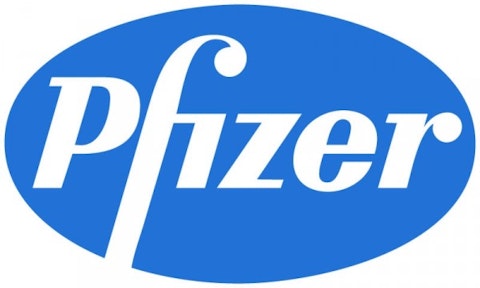Generic-drug makers are always on the hunt for the next branded drug to take down. But they can’t just go about launching copycats of every drug; it’s against the law to sell a generic version of a drug that’s under patent.
Unless, of course, a company can prove the patent isn’t valid. Unfortunately working the way through the court system takes time, so generic-drug makers sometimes launch early, expecting the patent to be thrown out in court.
For Teva Pharmaceutical Industries Ltd (ADR) (NYSE:TEVA) and Sun Pharmaceuticals, that plan didn’t work out too well. They both launched generic versions of Wyeth and Nycomed’s Protonix, but the patent was eventually upheld.
It’s costing the companies big.
Teva Pharmaceutical Industries Ltd (ADR) (NYSE:TEVA) and Sun are paying $2.15 billion to Pfizer Inc. (NYSE:PFE) and Takeda, which bought Wyeth and Nycomed, respectively. Pfizer Inc. (NYSE:PFE) will receive 64% of the payments, with the rest going to Takeda. Teva Pharmaceutical Industries Ltd (ADR) (NYSE:TEVA) is on the hook for $1.6 billion, and Sun will pay $550 million.
It’s unlikely that Teva Pharmaceutical Industries Ltd (ADR) (NYSE:TEVA) and Sun made that much from selling generic Protonix before the patent expired, but settling was likely the best move for them. When a company infringes on a patent, it’s potentially on the hook for treble damages, which can be as high as three times the amount that the infringement cost the company.
The cost of at-risk launches
To my knowledge, this is the first at-risk launch where a generic-drug maker had to pay for most of the losses incurred by a brand-name drugmaker, although at least one generic-drug maker had to give up some of its profits from an at-risk launch.
In 2006, Apotex made an at-risk launch of its generic version of Plavix — sold by Sanofi SA (ADR) (NYSE:SNY) and Bristol-Myers Squibb Co. (NYSE:BMY) — but the damages were limited to 50% of Apotex’s net sales through an agreement the companies signed before the at-risk launch. Fortunately, Sanofi SA (ADR) (NYSE:SNY) and Bristol-Myers Squibb Co. (NYSE:BMY)were able to get a court injunction to stop the at-risk launch and regain exclusivity for a few more years.
The large payment that Pfizer Inc. (NYSE:PFE) and Takeda received — they were smart enough not to sign an agreement before the at-risk launch — might make Teva Pharmaceutical Industries Ltd (ADR) (NYSE:TEVA), Sun, and other generic-drug makers think twice before making at-risk launches, at least for patents where it isn’t blatantly obvious that the patent is invalid.
One to keep your eye on
Momenta Pharmaceuticals, Inc. (NASDAQ:MNTA) and its partner Novartis AG (ADR) (NYSE:NVS) could benefit greatly from the precedence that Pfizer Inc. (NYSE:PFE) and Takeda have set. The companies launched a generic version of Sanofi’s Lovenox a few years ago that became a blockbuster because there weren’t any competitors other than Sanofi’s branded products. After 18 months, Watson Pharmaceuticals, now Actavis Inc (NYSE:ACT), and Amphastar launched their version of Lovenox, which Momenta Pharmaceuticals, Inc. (NASDAQ:MNTA) claims infringes on patents it has on how to make the generic version.
If Momenta can get its patents up held in court, Momenta and Novartis AG (ADR) (NYSE:NVS) could be in for a huge payday to make up for lost sales.
While you can certainly make huge gains in biotech and pharmaceuticals, the best investing approach is to choose great companies and stick with them for the long term.
The article Why the Pfizer-Teva Settlement Affects the Whole Industy originally appeared on Fool.com.
Fool contributor Brian Orelli has no position in any stocks mentioned. The Motley Fool recommends Momenta Pharmaceuticals. The Motley Fool owns shares of Momenta Pharmaceuticals.
Copyright © 1995 – 2013 The Motley Fool, LLC. All rights reserved. The Motley Fool has a disclosure policy.





